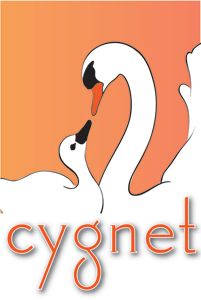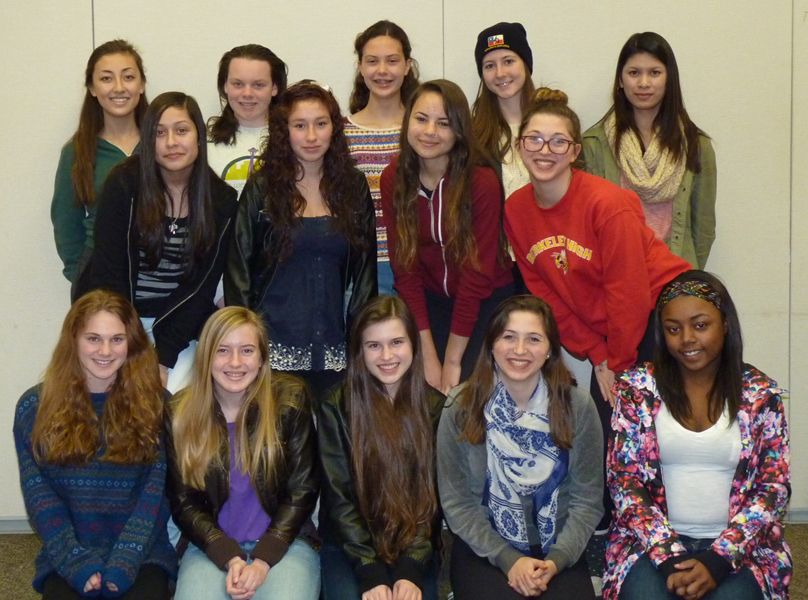CYGNET: Exploring Early Childhood Exposures and Puberty
 The Breast Cancer and the Environment Research Program (BCERP), is a joint effort co-funded by the National Institute of Environmental Health Sciences (NIEHS) and the National Cancer Institute (NCI), is the next phase of a program that began with the Breast Cancer and the Environment Research Centers (BCERC) in 2003. The BCERP supports a multidisciplinary network of scientists, clinicians, and community partners to examine the effects of environmental exposures that may predispose a woman to breast cancer throughout her life. The network engages both laboratory and population-based research to study puberty and other "windows of susceptibility" or specific time periods when the developing breast may be more vulnerable to environmental exposures.
The Breast Cancer and the Environment Research Program (BCERP), is a joint effort co-funded by the National Institute of Environmental Health Sciences (NIEHS) and the National Cancer Institute (NCI), is the next phase of a program that began with the Breast Cancer and the Environment Research Centers (BCERC) in 2003. The BCERP supports a multidisciplinary network of scientists, clinicians, and community partners to examine the effects of environmental exposures that may predispose a woman to breast cancer throughout her life. The network engages both laboratory and population-based research to study puberty and other "windows of susceptibility" or specific time periods when the developing breast may be more vulnerable to environmental exposures.
The program has three parallel efforts: the Puberty Study, an ongoing multi-site epidemiologic cohort study with more than 1200 young girls that is looking at determinants of pubertal maturation; the Windows of Susceptibility studies, (laboratory and epidemiological) addressing environmental influences on breast cancer risk throughout the lifespan; and a Coordinating Center with responsibility for organization and communications for the BCERP, and serving as a central repository and clearinghouse for cross-site data in the Puberty studies.
Zero Breast Cancer serves as the Community Outreach and Translation Core (COTC) and Community Partner for both the Puberty Study as well as the Windows of Susceptibility Study in the San Francisco Bay Area. The overall goal of the COTC is to provide opportunities for community members, breast cancer and environmental advocates, public professionals and policy makers to increase their understanding of the center's research studies, the research process, and the role environmental stressors play in the development of breast cancer and for researchers to increase their understanding about community, environmental, and health issues related to breast cancer.
Learn more about the Breast Cancer and the Environment Research Program at: http://www.bcerp.org/
CYGNET Youth Advisory Board

In partnership with the Breast Cancer and The Environment Research Program (BCERP) and the Division of Research at Kaiser Permanente Northern California, in 2012 we instituted an innovative Youth Advisory Board (YAB) for the CYGNET Study. CYGNET is one of three cohorts in the multi-site study of the effects of environmental exposures on puberty, which may predispose a woman to breast cancer later in life. The YAB is composed of 15 study participants, aged 12 to 15 when this group began. The multi-year study examined the girls' pubertal transitions, particularly looking at risk factors for earlier breast development and age of a girl’s first menstrual period which has been linked to an increased risk of breast cancer in adult life. The YAB members and mentors met monthly and provided feedback to CYGNET study researchers and staff on interview and questionnaire content and on the development of an informative brochure for fellow study participants. Over the past 2 years, YAB members have provided suggested design and content for the study website to inform the public, engage and retain study participants. They also actively participated in developing age-appropriate study, health and environmental education information and materials.
Youth Advisory Board Photovoice Project
The second year of the YAB focused on learning about health advocacy, which they then applied to create a Photovoice Project on environmental health issues in their neighborhoods. The project allowed members to communicate the strengths and deficiencies in their communities on topics ranging from healthy food access, physical activity, personal care products, food storage, alcohol consumption and stress management. Through this process, they developed critical thinking skills, social awareness, self-awareness, critical consciousness, goal-setting, and group decision making. Not only did thte YAB members produce an excellent visual and verbal exhibit, they also shared the Photovoice project with classmates, family members and other groups, increasing their confidence in communicating aobut the various aspects of environmental health.
Below are examples from this project. If you would like more information about the YAB Photovoice, contact us.
Research Partnership Outcome
CYGNET study research formed the basis for Dr. Greenspan and Dr. Deardorff's book The New Puberty, which inspired Zero Breast Cancer's educational campaign titled Girls' New Puberty. This campain seeks to make the findings from The New Puberty more accessible to a wider audience of people. Check out our English-language eGuide, YouTube animated videos, YouTube Youth Advisory Board Girls Talk videos, and infographic. Some of these materials have also been translated into Spanish (eGuide, YouTube animated videos, YouTube Youth Advisory Board Girls Talk videos and infographic) and Chinese (YouTube animated videos and infographic).
In 2013, Zero Breast Cancer awarded lead researchers Louise Greenspan, MD, and Gayle Windham, PhD, MSPH, and Julianna Deardorff, PhD, the Community Research Award for their work on the CYGNET study.




